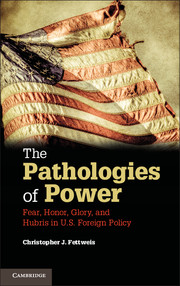1 - Fear
The Power of Nightmares in a Safe Society
Published online by Cambridge University Press: 05 June 2014
Summary
In politics, what begins in fear usually ends up in folly.
Samuel Taylor ColeridgeIn so far as we feel ourselves in any heightened trouble at the present moment, that feeling is largely of our own making.
George F. KennanBritish civil servant Cyril Northcote Parkinson began a 1955 essay in The Economist by observing that “work expands so as to fill the time available for its completion.” “Parkinson’s Law,” as it has become known, is commonly shortened to read that work expands along with time. International politics has its own version, according to Karl Deutsch: insecurity expands along with power. As states get stronger, they identify more interests, and the number of threats they perceive tends to grow. Consequently, the stronger countries are, the more insecure they often feel. Logic might suggest that the opposite should be true, that power and security ought to be directly related, that as state power grows, so too should security. Presumably potential challengers should be emboldened by weakness and deterred by strength. Why, then, do strong states seem to worry more, often about seemingly trivial matters? The tendency for insecurity to expand with power is not merely paradoxical, it is pathological because it is based on an irrational belief that often inspires counterproductive behavior.
- Type
- Chapter
- Information
- The Pathologies of PowerFear, Honor, Glory, and Hubris in U.S. Foreign Policy, pp. 24 - 93Publisher: Cambridge University PressPrint publication year: 2013



